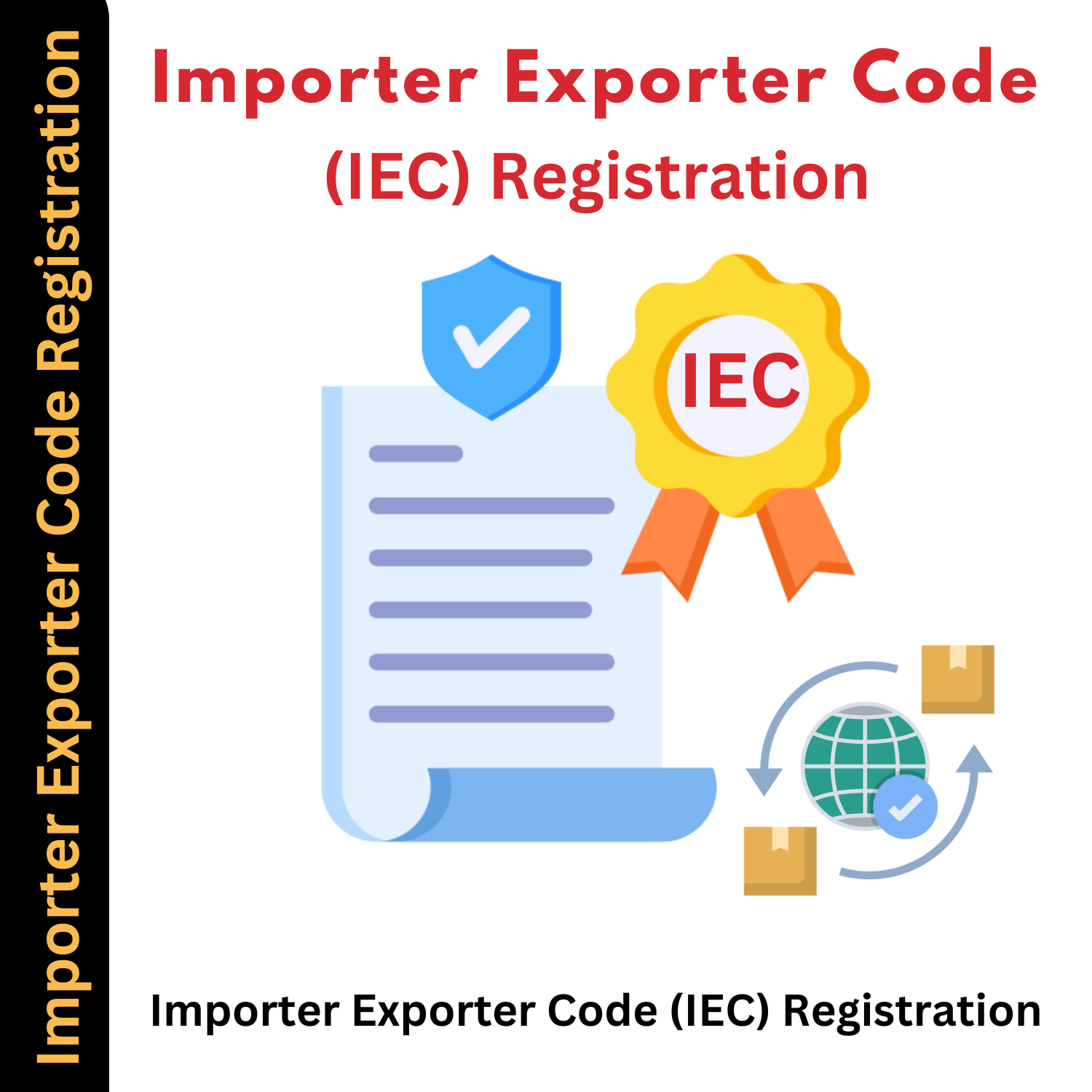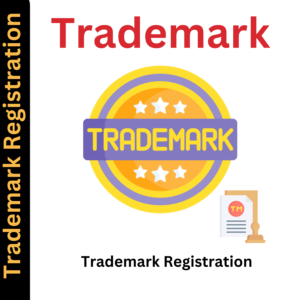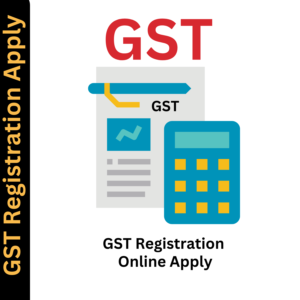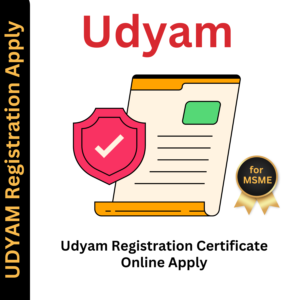Description
Introduction to Importer Exporter Code (IEC)
The Importer Exporter Code (IEC) is a crucial registration for businesses engaged in international trade. It serves as a unique identifier, critical for facilitating both import and export operations. Issued by the Directorate General of Foreign Trade (DGFT) in India, the IEC is mandatory for any entity looking to import goods into or export products from the country. Without this code, businesses face significant challenges in conducting cross-border trade, making IEC registration essential for compliance and smooth transaction processes.
The significance of the IEC extends beyond mere identification; it functions as a necessary legal requirement. Among its primary roles is the tracking of international trade activities, ensuring that businesses adhere to regulations, and facilitating smoother customs clearance. This regulatory framework is designed to minimize fraud, enhance accountability, and promote legitimate trade practices. For businesses, obtaining an IEC is a simple process that involves submitting an application along with relevant documentation, which confirms their eligibility to trade internationally.
The registration of an IEC is not confined to large enterprises alone; small and medium-sized enterprises (SMEs) also stand to benefit significantly from this code. By acquiring an IEC, these smaller businesses can access broader markets, upscale their operations, and enhance their visibility in global trade. Moreover, an IEC is linked with various other trade benefits, including eligibility for government-sponsored schemes aimed at boosting foreign trade.
In conclusion, the Importer Exporter Code (IEC) is a pivotal registration for any business seeking to participate in international trade. It not only helps businesses in compliance and legitimacy but also plays a vital role in fostering a more robust trading environment. Understanding the importance of IEC registration and its regulatory framework is essential for any entity involved in import and export activities.
Importance of Import Export Code (IEC)
The Import Export Code (IEC) serves as a fundamental requirement for any business engaging in international trade in India. It is essential not only for legal compliance but also for ensuring seamless operations in the global marketplace. By obtaining an IEC, businesses gain the ability to import and export goods without facing legal obstacles or penalties. This registration is a prerequisite for various customs and export procedures, thus acting as a gateway to international trade.
One of the primary advantages of acquiring an IEC is the enhancement of the business’s credibility on a global scale. International partners, suppliers, and customers often look for verified documentation, and having an IEC can instill confidence in potential business associates. Furthermore, it proffers a sense of legitimacy and professionalism, which can be crucial for establishing long-term relationships abroad. This credibility enables businesses to effectively negotiate contracts and explore new markets without hesitation.
Moreover, the IEC also facilitates easier financial transactions. It allows businesses to open an external bank account and apply for various export incentives, including exemptions and concessions under different trade policies. This can lead to significant financial benefits, such as reduced costs and increased competitiveness within the global market. Additionally, having an IEC aids in the retrieval of refunds on goods and services tax (GST) paid on exports, thereby enhancing cash flow and profitability.
Conversely, the absence of an IEC may put businesses at a considerable risk. Without this code, companies could face legal ramifications, including hefty fines and restrictions on engaging in international trade. The inability to attract credible partners and secure financial benefits can result in missed opportunities for growth and expansion. Therefore, obtaining an Import Export Code is integral for any business aspiring to thrive in the international trading arena.
Validity of IEC Code
The Importer Exporter Code (IEC) is a pivotal aspect of international trade in India, providing essential insight into its validity and operational prerequisites. The IEC is unique and has no expiration date; it is granted for a lifetime upon successful registration with the Directorate General of Foreign Trade (DGFT). This perpetual validity is significant as it equips businesses with the necessary authorization to both import and export goods without the requirement for periodic renewals.
However, while the IEC itself does not have an expiration timeline, it is critical for businesses to keep their information updated. Changes in the ownership of the business, alterations to the registered address, or modifications in the name of the entity necessitate an update to the IEC to ensure compliance with regulatory demands. Failure to notify the DGFT of such changes could result in penalties or complications in future transactions.
Moreover, it’s essential to be aware of the circumstances that could lead to the cancellation or suspension of the IEC. Non-compliance with prevailing trade regulations, engaging in fraudulent practices, or failing to adhere to prescribed customs procedures can prompt the DGFT to suspend or revoke the code. Additionally, if the holder remains inactive, such as not utilizing the IEC for a significant period, the authorities may take necessary actions regarding its status.
In conclusion, while the IEC is granted for a lifetime, continuous compliance with regulations and timely updates of information are essential for maintaining its validity. Businesses involved in international trade should ensure a proactive approach in managing their IEC to leverage its benefits fully while avoiding potential pitfalls that may affect their trading capabilities.
Nature of the Firm Obtaining an IEC
The Importer Exporter Code (IEC) is a crucial aspect of international trade and is essential for businesses aiming to engage in import and export activities. Various types of firms are eligible to apply for an IEC, each requiring different criteria for registration. The primary categories of businesses that can obtain an IEC include sole proprietorships, partnerships, limited liability partnerships (LLPs), and corporations. Each of these entities must adhere to specific regulations dictated by the Director General of Foreign Trade (DGFT).
Sole proprietorships are owned and operated by a single individual. To register for an IEC, the owner must provide necessary identification details, such as the Permanent Account Number (PAN) of the proprietor, along with other business-related documents. This form of business is typically easier and more straightforward in terms of registration compared to other entity types.
Partnership firms, which consist of two or more individualsoperating together, must present an official partnership deed along with the PAN of the firm and its partners. The documentation required for partnerships is slightly more extensive, as it provides a comprehensive view of the business’s structure and operational dynamics.
Limited liability partnerships (LLPs) are a hybrid form of partnership offering the security of limited liability while maintaining flexibility in management. To acquire an IEC, an LLP must furnish its registration certificate, along with documentation that specifies the partners and their respective shares in the business. Corporations, or companies as defined under the Companies Act, must provide their Certificate of Incorporation, PAN, and Memorandum and Articles of Association, highlighting the structure and objectives of the company.
In addition to these forms, other entities such as trusts and societies can also apply for an IEC, but they require pertinent documentation outlining their objectives and governance structure. Understanding the nature of the firm applying for an IEC is vital in ensuring compliance with trade regulations and smooth international operations.
Pre-requisites for Applying for Import Export Code Registration
Before embarking on the application process for an Import Export Code (IEC) registration, it is vital for businesses to meet certain prerequisites that facilitate a smoother registration experience. Firstly, the entity must be a legally established business entity, which can take the form of a sole proprietorship, partnership, limited liability company, or a corporation. Each of these structures has specific considerations and requirements, but all must be duly registered under applicable local laws.
Secondly, the business must possess a valid Permanent Account Number (PAN) allocated by the Income Tax Department of India. The PAN is critical as it serves as the unique identifier for the firm’s financial activities, and the IEC registration process requires submission of this number. Without a PAN, the IEC application cannot be processed.
Moreover, applicants must have an active bank account, as this is where any dues or refunds related to the import and export operations will be managed. The details of the bank account need to be provided during the IEC application process, emphasizing its importance in both transaction management and compliance with financial regulations.
It is also advisable for businesses to have a clear understanding of their primary objectives regarding their import and export activities. This includes having defined business plans that outline the types of products or services being imported or exported, target markets, and logistical strategies. Such clarity not only aids in the application process but also significantly influences operational success after obtaining the IEC.
Furthermore, engaging in preliminary market research can bolster the application by ensuring that the products align with market demand and regulatory compliance. By fulfilling these prerequisites, businesses can pave the way for a more efficient IEC registration process, which is necessary for legitimate global trade operations.
Documents Required for IEC Code Registration
In order to effectively apply for an Importer Exporter Code (IEC), candidates must prepare an array of essential documents that serve crucial roles throughout the registration process. Below is a comprehensive checklist of the documents required and their respective purposes.
Firstly, a valid proof of identity is mandatory. This can be in the form of a passport, Voter ID, Aadhaar card, or any government-issued identification. It serves to verify the applicant’s identity, ensuring that the registration process is compliant with regulatory standards.
Next, applicants must provide a proof of address document. This could be a utility bill, rental agreement, or a bank statement. The necessity of this document lies in confirming the applicant’s business or residential address, which is vital for communication and validation purposes.
Additionally, a bank account statement or a canceled cheque is required. This ensures that the applicant has a functional bank account, facilitating the processing of funds related to international trade transactions. Linking the IEC to a specific bank account simplifies the financial operations for both importers and exporters.
An important document is the business registration certificate, which may vary based on the type of entity, such as a partnership deed, certificate of incorporation, or a proprietorship registration. This certifies the legitimacy of the business entity and its operational compliance with government regulations.
Furthermore, a passport-sized photograph of the applicant is also required. This adds a personal touch to the documentation process, linking the applicant with their submissions.
Lastly, while not always mandatory, a self-attested copy of the Permanent Account Number (PAN) card is often requested. The PAN card is imperative for tax purposes and is used for tracking the financial activities of the entity registered for IEC.
By ensuring that all these documents are accurately prepared and submitted, aspiring importers and exporters can streamline the IEC registration process and minimize documentation-related hurdles.
Pre-Requisites for Applying for Import Export Code Registration
Note: These details will be validated with the Income Tax Department site.
Streamline Your IEC Application with SureEase
In today’s global marketplace, registering for an Importer Exporter Code (IEC) is a vital step for businesses looking to engage in international trade. However, the process can often appear daunting due to the numerous procedural requirements and documentations involved. This is where SureEase comes into play, offering specialized services that simplify and expedite the IEC registration process for businesses of all sizes.
SureEase provides a comprehensive suite of services designed to assist clients in navigating the complexities associated with IEC registration. One of the primary advantages of partnering with SureEase is their team of experienced professionals, who are well-versed with the latest regulatory requirements. They ensure that businesses can fulfill all necessary compliance aspects efficiently, significantly reducing the likelihood of delays caused by incomplete or inaccurate documentation.
Furthermore, SureEase emphasizes a personalized approach to each client’s needs. By conducting a thorough assessment of the specific requirements related to IEC applications, they tailor their services accordingly. This includes detailed guidance on required documents, filing processes, and timelines, ensuring that clients remain informed every step of the way. Their commitment to transparency fosters trust, leading to a more relaxed experience as businesses embark on their import or export journeys.
Moreover, utilizing SureEase’s services can lead to substantial time savings for businesses. By alleviating the burdens of administrative tasks and procedural complexities, companies can redirect their focus towards core competencies, enhancing overall productivity. With SureEase as a partner, clients can rest assured knowing they have industry professionals assisting them, paving the way for a hassle-free IEC registration process.
In conclusion, partnering with SureEase not only streamlines the IEC application process but also empowers businesses to engage confidently in international trade. By leveraging their expertise, companies can navigate the intricacies of registration with ease, setting a solid foundation for successful global transactions.
Happy Client Testimonials
At SureEase, we take great pride in the satisfaction of our clients who have successfully obtained their Importer Exporter Code (IEC) registration. Our commitment to providing seamless service has considerably benefited many businesses, allowing them to navigate the complexities of international trade with confidence. Below are some testimonials from our valued clients that illustrate their positive experiences.
One of our clients, a small-scale manufacturer of textiles, shared, “The process of getting my IEC seemed daunting, but SureEase made it so easy. Their team guided me through each step, addressing my concerns promptly. Having the IEC has opened doors for my business, enabling us to export our products to international markets.” This sentiment is echoed by many entrepreneurs who have found that the IEC is a crucial component in expanding their business horizons.
Similarly, a client in the food industry remarked, “SureEase was incredibly helpful throughout my IEC registration process. They provided insightful advice and ensured that all my documentation was in order, which greatly reduced my stress. Since obtaining my IEC, I have seen a significant increase in inquiries from overseas buyers.” This highlights how the IEC can be a powerful tool for businesses aiming to venture into global markets.
Moreover, one client noted, “What impressed me most about SureEase was their attentiveness and professionalism. The guidance I received was invaluable, and their quick turnaround meant I faced no delays in starting my export operations.” Client stories like these illustrate the effectiveness of our services and underline the importance of proper IEC registration for aspiring exporters.
Through these testimonials, it is evident that obtaining an IEC not only enhances operational capabilities but also brings forth opportunities for growth and expansion in international trade.





Reviews
There are no reviews yet.